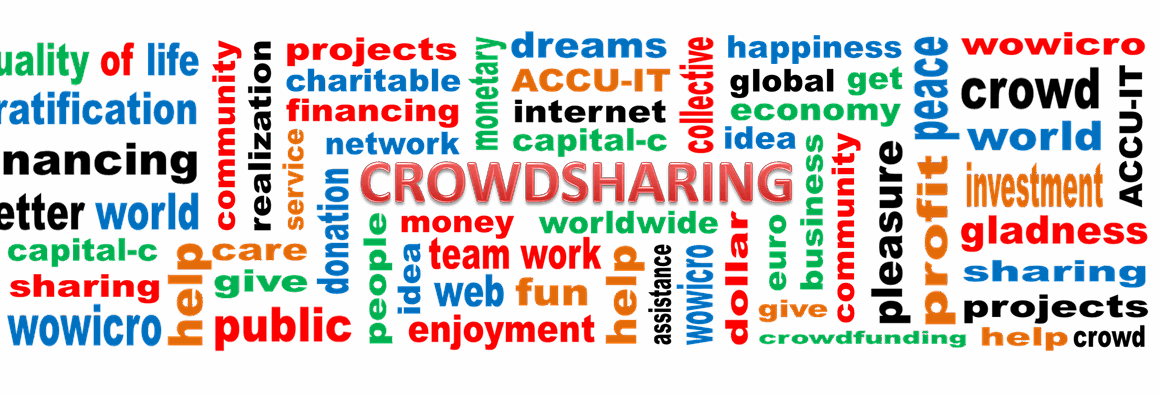The Future of Crowdfunding Platforms: Innovations to Expect
Crowdfunding platforms have significantly transformed the financial landscape by providing a crucial avenue for entrepreneurs and startups to secure capital. Over the past years, these platforms have rapidly evolved, particularly as technology becomes more integrated into everyday financial processes. The anticipated innovations within this sector hold tremendous potential for both investors and creators. One exciting trend entails personalized investment strategies tailored to individual backers’ preferences and risk profiles. This could revolutionize how investment opportunities are matched with backers by employing advanced algorithms and machine learning techniques. Furthermore, improved user interfaces are expected to make interactions more seamless. With a focus on enhancing user experience, platforms will implement features like simplified navigation and real-time analytics to track funding progress. Another promising innovation is the integration of blockchain technology, promoting transparency while reducing fraud. As these platforms embrace modernization, it will attract more diverse funding sources and establish trust. Additionally, regulations governing crowdfunding practices will also adapt, ensuring that standards meet the evolving needs of creators and investors alike. The future looks bright for crowdfunding, ushering in innovative changes that will optimize the entire funding process for all stakeholders involved.
In tandem with technological advancements, regulatory frameworks around crowdfunding platforms are also set to evolve. As the landscape continues to mature, regulators are reassessing the guidelines governing these platforms to protect both investors and projects. One of the foremost expected changes is the introduction of more robust compliance measures, which will foster trust among users. Crowdfunding platforms may need to integrate advanced KYC (Know Your Customer) and AML (Anti-Money Laundering) protocols to prevent misuse and safeguard investments. Furthermore, transparency in reporting will likely be heightened, pushing platforms to disclose more information regarding project viability, financial health, and risk factors. This shift aims to empower investors with factual data enabling informed decision-making. Another area of interest is equity crowdfunding, where regulations may become more lenient, allowing smaller companies to access a larger pool of investors. As these regulatory changes unfold, they may bridge the gap between traditional financing and crowdfunding methodologies. Investors will benefit immensely from enhanced stability while businesses seeking funding will have broader access. Overall, the evolving regulations imply a commitment to fostering a safe and transparent crowdfunding environment, which is crucial for long-term sustainability and growth in the sector.
The integration of social media with crowdfunding platforms is becoming increasingly significant. As users turn to familiar networks, platforms will harness these connections effectively to foster a community atmosphere around funding projects. Tools that facilitate social sharing are expected to enhance the ability of creators to reach a wider audience. By leveraging social media, crowdfunding campaigns can achieve viral potential, making them more successful through user-generated promotion. Moreover, platforms might explore gamification strategies, where backers are rewarded for sharing campaigns within their networks. This could lead to fulfilling experiences for supporters who feel more engaged and connected to projects. The use of live streaming and interactive content will also likely grow, allowing project creators to showcase their missions and engage with potential backers in real time. These innovations will not only enhance user interaction but serve to generate authenticity and excitement around fundraising efforts. The result is stronger community ties and a heightened awareness of various initiatives. The emphasis on collaboration through social media will build an ecosystem where supporters feel empowered, driving greater funding success for diverse creative and entrepreneurial projects.
Emerging Technologies Shaping Crowdfunding
Emerging technologies such as artificial intelligence (AI) and data analytics are set to reshape crowdfunding platforms dramatically. These advancements promise to refine how campaigns are launched, evaluated, and funded. With predictive analytics, platforms can analyze large datasets to identify trends and forecast outcomes, empowering creators with insights about potential success. For instance, learning from previous projects may help tailor new campaigns, increasing their chances of achieving funding goals. Additionally, machine learning algorithms can provide personalized recommendations to investors, showcasing projects that align with their interests. This personalization enhances the user experience, driving engagement and building loyalty among backers. Furthermore, AI-based tools can automate aspects of campaign management, streamlining operations for creators. By utilizing chatbots, for example, they can handle inquiries efficiently, leaving project founders more time to focus on core activities. As crowdfunding embraces these technologies, the underlying infrastructure will support faster decision-making and reduce overhead costs. Ultimately, harnessing emerging technologies will elevate the crowdfunding experience, resulting in greater satisfaction and success for both project creators and supporters.
As the world becomes increasingly interconnected, crowdfunding platforms are also expected to embrace a global approach. This evolution is marked by an expansion beyond local and regional boundaries, enabling creators to access funding from diverse geographical locations. Cross-border crowdfunding offers significant advantages, particularly for innovative startups seeking niche market support. Investors will be presented with a wider array of projects to choose from, fostering international awareness and providing exclusive opportunities. To facilitate this global movement, platforms will need to implement localization features, allowing users to navigate different languages, currencies, and cultural contexts seamlessly. Furthermore, regulatory compliance will be crucial, demanding that platforms adhere to varying international laws. Developing partnerships with local financial institutions may also be instrumental in ensuring smoother operations across borders. Additionally, crowdfunding platforms should prioritize secure transactions to build confidence among backers. By fostering a truly global environment, crowdfunding can drive diverse innovation, enhancing creative energy across industries. This international focus will not only benefit specific projects but also promote a landscape of collaboration among creative minds worldwide, ultimately leading to shared achievements on a global scale.
The rise of impact investing is another trend likely to influence crowdfunding platforms in the near future. Driven by socially conscious investors, there is increasing demand to support initiatives that create positive social and environmental change. Crowdfunding can seamlessly align with impact investing, as it offers unique opportunities to fund initiatives that address pressing global challenges. Fans of ethical investing are expected to gravitate towards platforms that emphasize social returns alongside financial gains. Platforms may enhance visibility for socially responsible projects by highlighting their impact metrics to attract these conscious investors successfully. This transparency regarding outcomes and socially beneficial priciples can differentiate their campaigns from traditional funding avenues. Additionally, multiple platforms may emerge that focus exclusively on social enterprise funding, guiding more capital towards issues like poverty alleviation, education, and sustainability. As investors continue to favor impact-oriented projects, crowdfunding will play a critical role in redefining success beyond mere profit. Ultimately, the fusion of crowdfunding and impact investing fosters a culture of accountability and shared purpose, encouraging a more compassionate approach to the funding landscape.
The Role of Community Engagement in Crowdfunding
Community engagement is emerging as a key driver of success in crowdfunding platforms. As backers increasingly seek a connection to the projects they support, understanding how to effectively engage their communities is crucial for creators. Building trust and establishing rapport with potential backers ensures ongoing support, which extends beyond mere transactions. Strategies that foster community connections will likely grow in prominence, integrating features that allow creators to communicate directly with supporters. Updates on the project’s progress, behind-the-scenes content, and personalized acknowledgments can enhance the overall backer experience. Furthermore, platforms may consider forum-like structures where supporters can interact with one another, creating a sense of belonging. This increasingly participatory environment encourages feedback and collaboration, ultimately refining projects based on community input. It can also motivate supporters to become advocates for campaigns, further amplifying their reach. Social proof, such as prominent endorsements or testimonials, might play an even larger role in establishing credibility. As creator communities thrive, crowdfunding can evolve into something much bigger—a movement where collective power and shared vision drive impactful change, ultimately changing how projects come to life.
In summary, the future of crowdfunding platforms is poised for significant transformation, driven by technological developments and changing societal expectations. The integration of AI, enhanced community engagement, and regulatory changes will define how these platforms operate moving forward. As crowdsourcing evolves, both project creators and investors will experience greater empowerment and engagement. The shift towards global funding will further enable projects to reach untapped markets, while growing interest in impact investing illustrates a changing investment landscape. Platforms will need to stay agile, accommodating user needs while embracing new capabilities. As the foundation of crowdfunding strengthens, collaboration among stakeholders—creators, backers, and regulatory bodies—will foster a thriving ecosystem. By continuously innovating and implementing effective strategies, crowdfunding platforms can maintain relevance and catalyze change within creative industries. Ultimately, as they address the needs of users and navigate regulatory landscapes, platforms will play a critical role in shaping the diverse financial future. The advancements expected in this space reflect a deeper engagement with our shared values, illustrating how crowdfunding, when done right, offers profound opportunities for global connection and creativity.


